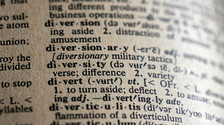Lizzy B.
Pronunciation of Alef
!اهلا
I have heard some Arabic speakers pronounce the أ like the "a" in "apple", and some say it like the "a" in "father"? I like to say it like the "a" in "apple", but my Arabic teacher says it like in "father". Does this depend on what country you come from, or personal preference?
24 พ.ค. 2016 เวลา 0:27
คำตอบ · 4
3
First of all, what you wrote " أ " is not "alef", it's "hamzah", this is alef " ا ".
Now, what you're talking about is called "Tafkheem and Tarqeeq" , "tafkheem" is "thickening" the sound, the letter is pronounced heavy and full, and "tarqeeq" is "softening" the sound, the letter is pronounced lightly.
There are 7 heavy/thick letters in Arabic, which are : خ - ص - ض - ط - ظ - غ - ق , the rest of the letters are soft, except for " ر" which have special cases. You can see the difference between light and heavy sounds by comparing "س" (light) and "ص" (heavy) for example.
The letter " ا " is pronounced according to the letter before it, so if the letter before it is heavy, it's pronounced heavy as well (even heavier than in "father"), if the letter before it is soft, it becomes soft (as in "apple" or "sad").
For example:
سالم "Saalem" = the letter before the " ا " is " س " , a light letter, so the "alef" becomes light ( apple / sad ).
صالح "Saaleh" = the letter before " ا " is "ص", a heavy letter, so the "alef" becomes heavy ( heavier than "father" ).
I hope it's clear.
24 พฤษภาคม 2016
The أ pronounces like a in "apple" if it wrote like that " أ " . but it pronounces like a in "father" if it wrote like that " ا " without " ء "
24 พฤษภาคม 2016
The أ pronounces like a in "apple" if it wrote like that " أ " . but it pronounces like a in "father" if it wrote like that " ا " without " ء "
24 พฤษภาคม 2016
ยังไม่พบคำตอบของคุณใช่ไหม
เขียนคำถามของคุณเพื่อให้เจ้าของภาษาช่วยคุณ!
Lizzy B.
ทักษะด้านภาษา
ภาษาอาหรับ (เลอวานต์), ภาษาอาหรับ (มาตรฐานสมัยใหม่), ภาษาอังกฤษ, ภาษาฝรั่งเศส, ภาษาเยอรมัน, ภาษาเปอร์เซีย (ฟาร์ซี), ภาษาโปรตุเกส, ภาษาสเปน
ภาษาที่เรียน
ภาษาอาหรับ (เลอวานต์), ภาษาอาหรับ (มาตรฐานสมัยใหม่), ภาษาอังกฤษ, ภาษาเยอรมัน, ภาษาเปอร์เซีย (ฟาร์ซี), ภาษาโปรตุเกส, ภาษาสเปน
บทความที่คุณอาจชอบ

Top 6 Mistakes to Avoid with Vocabulary Acquisition
23 ถูกใจ · 4 ความคิดเห็น

Navigating Your First Job: Do's and Don'ts in the Workplace
44 ถูกใจ · 18 ความคิดเห็น

What Content to Watch to Acquire Advanced-level Proficiency
75 ถูกใจ · 48 ความคิดเห็น
บทความเพิ่มเติม
